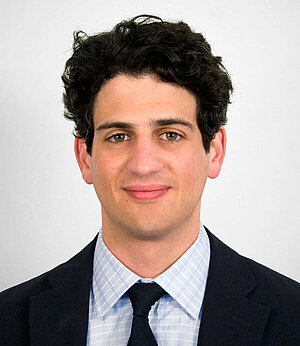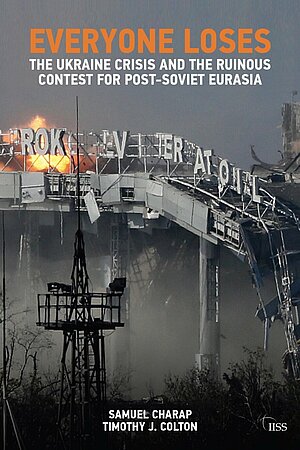“Neither Russian nor Western policies where formulated in a vacuum”
Together with Timothy J. Colton, Samuel Charap has just published "Everyone Loses. The Ukraine Crisis and the Ruinous Contest for Post-Soviet Eurasia". In the first interview in our series "Meet the Author" he answers five questions about the new book.

How did the idea for your book originate?
We started the project in part because we weren’t satisfied with the prevailing explanations of the Ukraine crisis. Broadly speaking, the most prominent explanations are divided into two camps: the school that says that this is all a function of Russia’s nefarious imperialistic policies towards its neighbours and another school that claims that it’s all due to the West’s policies that have put Russia into a corner so that it had no choice but to respond.
How is your explanation different?
We find that neither of those explanations are fully satisfying because they ignore the fundamental dynamic: the interaction between Russian and Western policies. That’s what we look at in the book: how this dynamic developed over the course of the post-Soviet period and how that produced the outcome that we see today. Neither Russian nor Western policies where formulated in a vacuum. So in order to understand the crisis, you have to examine the dynamic interaction between them.
You talk about a “ruinous contest”, which implies criticising both sides. What is your impression of the public debate on this issue at the moment?
In the book, we try to avoid criticism – while there is a lot to condemn from a moral perspective we don’t see that as our role. We point out mistakes made by both sides but we see our role as analysts to try to understand and explain rather than to critique. When we refer to a ruinous contest, that’s a synonym for negative sum, a term from game theory. It refers to our judgment about the outcome of the Ukraine crisis, which is that all major players, Ukraine first and foremost, but also Russia, the West and the other countries in between, have ended up worse off than they were before the crisis began.

What are the reactions on your book so far? What sort of reactions do you expect?
So far we have been pleasantly surprised that no one has attempted to push us into a corner of the debate, because I don’t think the book falls into either of these camps. We worry a little bit about how the book might be received in the region. There is a Russian translation planned and we are working on the Ukrainian translation as well. We think it’s important to have this debate in Russia, Ukraine, and more broadly in the region just as much as it is to have the debate in the West.
What’s the story behind the photograph on the cover? Why did you choose it?
Negative sum or ruinous outcome is a very abstract term. In the book we are often talking on a very abstract international or geopolitical level. To make it palpable, we chose the image of the battle for Donetsk Airport as a visual metaphor for our thesis. It captured a number of things. First of all, we recall that the airport’s formal name is the Sergey Prokofiev International Airport. Prokofiev himself was an ethnic Russian, but he was born in Donetsk, and incorporated motifs from Ukrainian folk songs into his works. So he represented historical ties linking Ukraine and Russia culturally. The airport itself was shiny and new; very modernized as a result of the renovation that happened in the run-up to the 2012 European Football Championship. It displayed Ukraine’s industrial heatland’s relative prosperity, and the country’s increased standing in the world. The tragedy of the siege of the Donetsk Airport was that 700 people died (that’s almost 10% of the total deaths in the war) over what was a superfluous asset. The airport itself served no military function despite the incredibly intense battle surrounding it. So it became symbolic, but at the same time it was also totally militarily irrelevant for the broader war. And that is what we ultimately see as the broader dynamic: That we have a lot of painful costs and very few gains as a result of this broader contest for post-Soviet Eurasia – nobody ends up winning and everyone loses.
The interview was conducted by Stefanie Orphal, communications director at ZOiS.
Samuel Charap is Senior Fellow for Russia and Eurasia at the International Institute for Strategic Studies, based in the IISS–Americas office in Washington D.C. Together with Timothy J. Colton, he has just published the book Everyone Loses. The Ukraine Crisis and the Ruinous Contest for Post-Soviet Eurasia (Routledge, 2017).